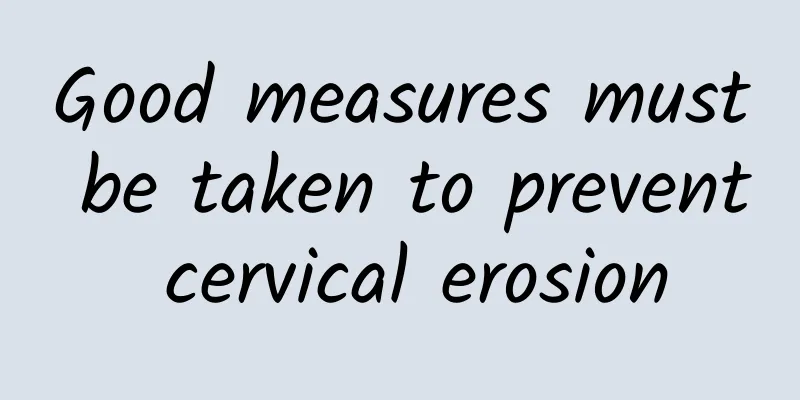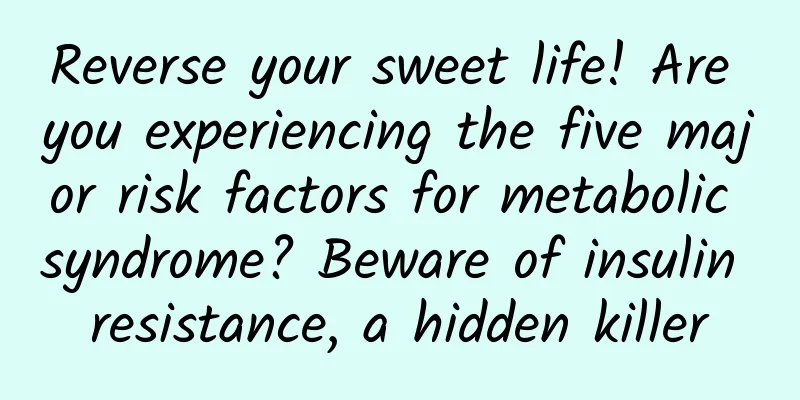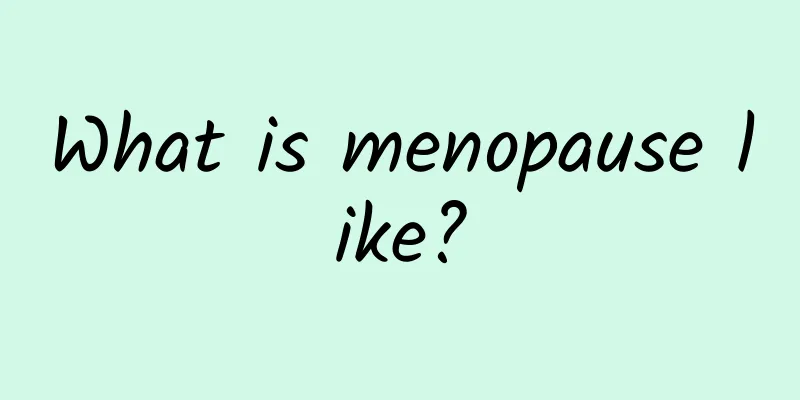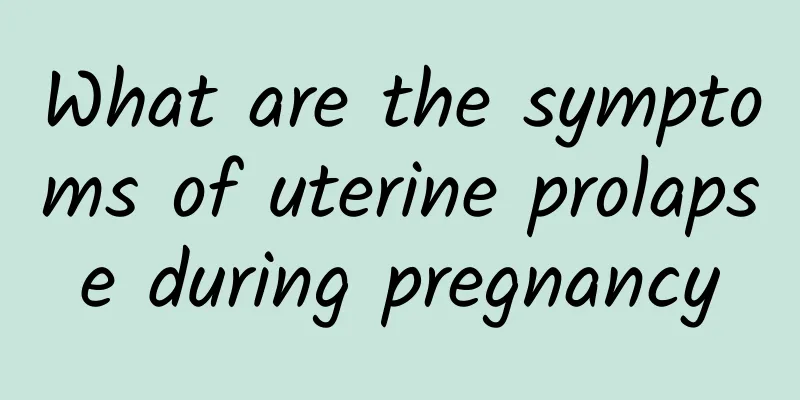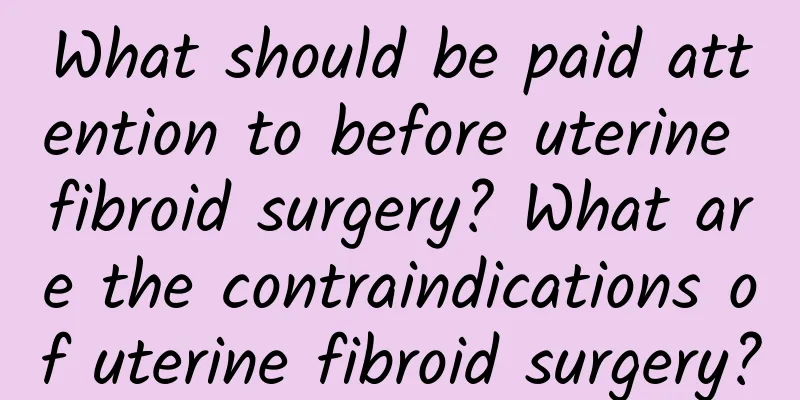How to treat uterine fibroids? What is the best food to eat for uterine fibroids?
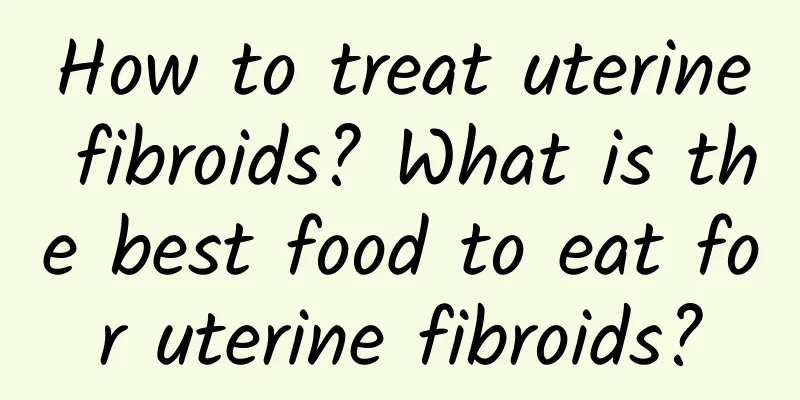
|
Uterine fibroids are one of the most common benign tumors in the female reproductive organs and one of the most common tumors in the human body. They are also called fibroids and uterine fibroids. Because uterine fibroids are mainly composed of the proliferation of uterine smooth muscle cells and a small amount of fibrous connective tissue exists as supporting tissue, they are more accurately called uterine leiomyoma. Uterine fibroids. The etiology of uterine fibroids is still unclear and may involve a complex interaction between normal myometrial cell mutations, sex hormones, and local growth factors. Uterine fibroids are hormone-dependent tumors. Estrogen is the main factor that promotes the growth of fibroids. Some scholars believe that growth hormone (GH) is also related to the growth of fibroids. GH can promote mitosis in coordination with estrogen and promote the growth of fibroids. They also speculate that human placental lactogen (HpL) can also promote mitosis in coordination with estrogen. They believe that the accelerated growth of uterine fibroids may be related to the high hormone environment of pregnancy and HpL is also involved. In addition, ovarian function and hormone metabolism are controlled and regulated by higher nerve centers, so nerve center activity may also play an important role in the onset of fibroids. Uterine fibroids are more common in women of childbearing age, widowed women, and women with uncoordinated sexual lives. Chronic pelvic congestion may also be one of the causes of uterine fibroids. In short, the occurrence and development of uterine fibroids may be the result of the combined action of multiple factors. Analysis of treatment methods for uterine fibroids According to the different locations of uterine fibroids in the uterine muscle wall, they can be divided into intramural, subserous, submucosal and intra-broad ligament fibroids. If the fibroids are small, asymptomatic, without complications or degeneration, they generally do not require treatment. Especially for those who are close to menopause, due to the low estrogen level after menopause, the fibroids will naturally shrink or disappear, and only regular check-ups every 3 to 6 months are required. If the fibroids are found to be enlarged or the symptoms are obvious during the check-up, further treatment can be considered. Uterine fibroids can be treated with surgery and medication: 1. Surgical treatment of uterine fibroids 1. Hysterectomy is suitable for hysterectomy > 3 months of gestational uterine size, although the fibroids are not large, but the symptoms are obvious, or the growth of fibroids cannot rule out malignancy; 2. Myoma removal: Suitable for patients under 35 years old, unmarried or childless; 2. Drug treatment of uterine fibroids This method is mainly suitable for patients with small fibroids, few symptoms, near menopause or whose systemic conditions cannot tolerate uterine fibroid surgery. 1. Methyltestosterone, testosterone propionate; 2. Progesterone. ① For patients who need to have children; ② Choose medroxyprogesterone, megestrol acetate, norethisterone, etc.; ③ Luteinizing hormone-releasing hormone analogs. There may be many treatments for the disease, but they may not be effective. Patients with uterine fibroids need to take appropriate treatments, especially elderly female friends, who should have regular checkups to avoid benign tumors turning into malignant ones, which are difficult to treat. What is the best food for uterine fibroids? Uterine fibroids diet is a good auxiliary treatment tool. Uterine fibroids diet is mainly light, do not eat mutton, shrimp, salted fish, peppers, onions, wine and other spicy foods and drinks. Uterine fibroids patients will experience malnutrition and anemia, irregular menstruation, and some patients will experience normal pregnancy. Experts point out that uterine fibroids patients should use more nutritious foods, such as eggs and some vegetables, cucumbers, mushrooms and other foods that are helpful for the treatment of uterine fibroids. Infertility experts remind you that when paying attention to your diet for uterine fibroids, do not forget to regulate your lifestyle, prevent overwork, pay attention to rest, keep the external causes clean and dry, if the leucorrhea increases, pay attention to cleaning the vulva at any time, avoid getting pregnant again, do not take in extra estrogen, and pay special attention after menopause to prevent the growth of uterine fibroids. |
<<: What are the treatments for uterine fibroids? What are the dangers of uterine fibroids?
>>: How to treat uterine fibroids How to treat uterine fibroids
Recommend
What are the preventive measures for irregular menstruation?
Irregular menstruation is one of the common probl...
How much harm does abortion do to women? Listen to the doctor
Abortion is a common measure for many women to te...
Why is cervical erosion becoming more and more common at younger ages? What should you pay attention to in your diet for cervical erosion?
Why are cervical erosion happening to younger and...
Is cervical hypertrophy dangerous?
Are cervical hypertrophy harmful? To this questio...
Best hospital for the treatment of uterine effusion
Which hospital is good for treating uterine effus...
Like Kate! 6 rules for pregnant mothers to control their weight
Britain's Princess Kate is about to welcome h...
Diet therapy for amenorrhea
(1) Peach kernel and ox blood soup: 10-12g peach ...
Common causes of ovarian cysts in daily life
Understanding the causes of ovarian cysts should ...
What is the difference between bleeding and menstrual blood?
Menstrual blood refers to menstrual blood. The di...
How long does it take to cure a miscarriage?
We all know that after a woman has undergone pain...
What should I put in chicken soup for uterine fibroids? What soup should I drink to treat uterine fibroids?
What to put in chicken soup with uterine fibroids...
What are the costs of treating uterine fibroids?
We must correctly grasp the treatment costs of ut...
What are the obvious symptoms of threatened miscarriage?
What are the obvious symptoms of threatened abort...
Always failing in weight loss? Find out the causes and physique of obesity first! TCM: First understand whether you are really fat or just puffy
Many people who are determined to lose weight oft...
What are the diagnostic criteria for adenomyosis?
What are the diagnostic criteria for adenomyosis?...



